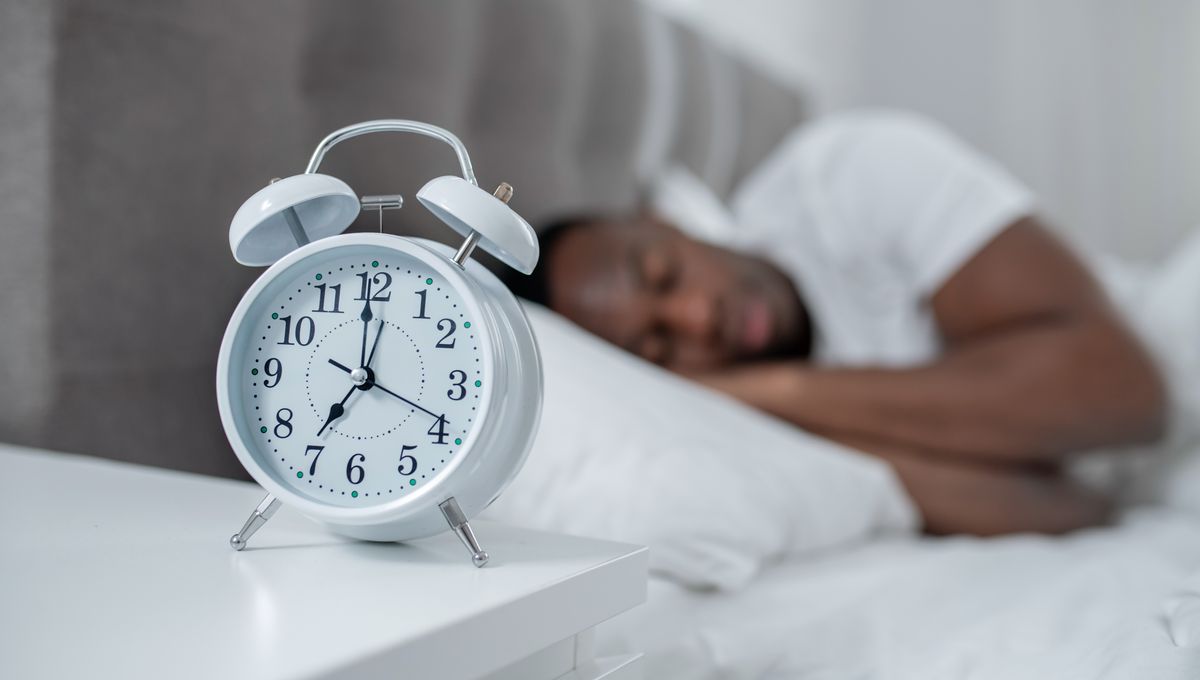
Everyone is tired, and it’s no wonder. Between racing thoughts, a snoring partner, and pets invading the bedroom, getting a solid eight hours can seem an impossible task. Even taking a nap might not give us the boost we’re seeking. But take heart, weary reader: there are some things you can do. One of the simplest to explain, though not always the simplest to achieve, is to get yourself into a consistent routine.
Most health authorities, from the National Heart, Lung, and Blood Institute (NHLBI) to the UK’s NHS, seem to agree that the first step to better “sleep hygiene” is to try to go to bed at the same time each night. And that means every night, including weekends and holidays.
It’s all to do with your circadian rhythm, sometimes called your “body clock”. This internal timekeeper is involved in lots of aspects of human health, and disruption to it has been linked with various different diseases and conditions.
Humans are not alone in having a circadian rhythm – they’ve also been demonstrated in other animals, plants, and even bacteria. In humans, the actual “clock” that keeps track of the rhythm is found in a part of the brain called the suprachiasmatic nucleus (SCN), within the hypothalamus. It coordinates the different circadian rhythms that exist within different bodily systems, but the one we’re particularly interested in is the sleep-wake cycle.
As explained by the Sleep Foundation, the SCN responds to light detected by the retina, a signal that it’s daytime and we should be awake and alert. Production of the hormone melatonin is suppressed, and only starts to increase again in the evening as light levels decrease and the body readies itself for sleep. The longer we’ve been awake, the stronger our sleep drive, telling us the body is craving the restorative powers of slumber.
Sleep-wake cycles vary throughout the human lifespan, with babies needing much more sleep than the elderly. Many adolescents genuinely struggle to wake up early – all stereotyping aside – which is why there has been controversy over early school starting times in some regions.
For most adults, barring situations like jet lag or sleep disorders, the circadian rhythm and the sleep drive combine to promote sleepiness in the evening. The idea of having a set sleeping and waking time is to work with this natural cycle, rather than trying to fight against it.
Ideally, you’ll want to combine your set bedtime with a period of relaxation beforehand. We’ve all succumbed to the temptation to grab our phones the second we get into bed, but if possible this is best avoided. Instead, the NHS recommends reading a book, listening to some relaxing music or a podcast, or trying some sleep meditation. It might take a while for your new routine to start having an impact, but stick with it.
Of course, there are some people for whom going to sleep at the same time every night is just impossible, such as those who work shifts, or those with young children who may not have much respect for a carefully curated snoozing schedule. The NHLBI lists some strategies especially for shift workers, and the theme of consistency comes up here too. While it won’t be possible for everyone, if you can limit the number of shift changes you have, you can at least stick to more of a routine – even if that routine involves daytime sleeping.
The NHLBI estimates that 50-70 million Americans have sleep disorders, and one in three don’t regularly get the recommended amount of shuteye. If you’re having persistent trouble sleeping, it’s always worth mentioning this to your healthcare provider, but trying out a more consistent routine could be a good first step towards a more restful night.
The content of this article is not intended to be a substitute for professional medical advice, diagnosis, or treatment. Always seek the advice of qualified health providers with questions you may have regarding medical conditions.
All “explainer” articles are confirmed by fact checkers to be correct at time of publishing. Text, images, and links may be edited, removed, or added to at a later date to keep information current.
Source Link: Why You Should Go To Sleep At The Same Time Each Night